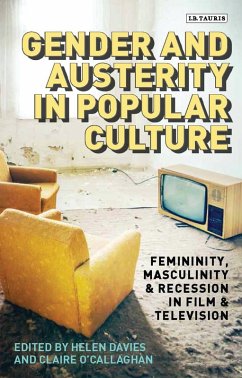From the gritty landscapes of The Hunger Games and The Walking Dead, to the portrayal of the twenty-first-century precariat in Girls, this book explores how transatlantic visual culture has represented and reconstructed ideas of gender in times of financial crisis. Drawing on social, cultural and feminist theory, these writers explore how men and women experience austerity differently and illuminate the problematic ways in which economic policy can shape how gender is presented in popular culture. Written from the perspective that the popular is indeed political, this book considers film, literature and television's ideological attitudes towards race, sex and disability. It also takes into account how mass culture has responded to austerity in the past and the present, whilst examining the impact that feminism will have in the future.
Bitte wählen Sie Ihr Anliegen aus.
Rechnungen
Retourenschein anfordern
Bestellstatus
Storno









